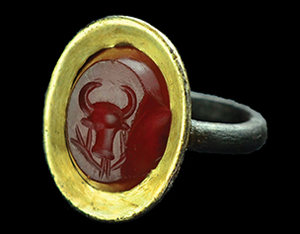
Scientists thought it was just a hill in East Africa. Little they know what lies below is a lost town of a powerful ancient civilization.
The Kingdom of Aksum might not sound familiar to you, but it is actually a powerful empire that reigns between 80 BC to AD 825. It is located to the outskirt of what is now known as Ethiopia.
Scientists have been studying the ancient civilization for a while but it was not until 2009 when 25-meter high hills located near the village of Edaga Rabu took their interest upon local residents' suggestion.
Residents know the area was important through oral tradition but they have no idea why, said Michael Harrower, the lead author of the study and associate professor of archeology at Johns Hopkins University.
Upon excavating, they discovered a small town called Beta Samati, and it was inhabited for around 1,400 years.
A trading hub in a culturally diverse empire
Through radiocarbon dating technique, the scientists have estimated that has started to flourish around 750 BC and has survived throughout the reign of the Kingdom of Aksum, which plays a great role in the history of Ethiopia.
The Aksum is said to have traded with the Roman Empire, and through the artifacts uncovered like gold rings, coins and pottery, the researchers believe that Beta Samati served as the link between the capital of the Kingdom and the Red Sea.
But the more important discoveries are the building, according to Aaron Butts, a professor of Semitic and Egyptian languages at Catholic University in Washington, DC.
Archeologists were able to uncover a large basilica that was dated back to the fourth century. This place appeared to be the earliest place for worshipping of Christian Aksumites, as it was built shortly after the kingdom's transition from polytheism to Christianity during the mid-fourth century.
Butts, who was not involved in the study, also added that the basilica might also be the first church built in the Sub-Saharan African region.
Moreover, the study also said that the relics found just proved how "culturally diverse" the once-massive kingdom is due to the observed influences of Roman, Christianity and paganism.
For instance, the team discovered a gold Roman-style ring which features an ancient Ethiopic inscription that reads "venerable". Harrower said that this is the most interesting relic they found as it is a combination of both ancient Roman and ancient African traditions.
Harrower hoped that the ring will be displayed on a local exhibition so the local community can benefit from it.
The study was published in the journal Antiquity on Wednesday.
The Kingdom of Aksum
The Kingdom of Aksum, or something referred to as Axum, is said to have a huge impact on Egypt, southern Arabia, Europe and Asia due to its naval and trading power. The kingdom has served as the link between the Asian and the Meditteranean region.
A Persian writer included the kingdom to the four powerful empires in the world at that time yet there is very little information about the kingdom. But scientists do know that Christianity flourished in the kingdom during King Ezana's reign in the middle of the fourth century. Some accounts also claimed that Queen Sheba, one of the wives of an important Judaist figure Solomon, came from the kingdom.
© 2025 NatureWorldNews.com All rights reserved. Do not reproduce without permission.





